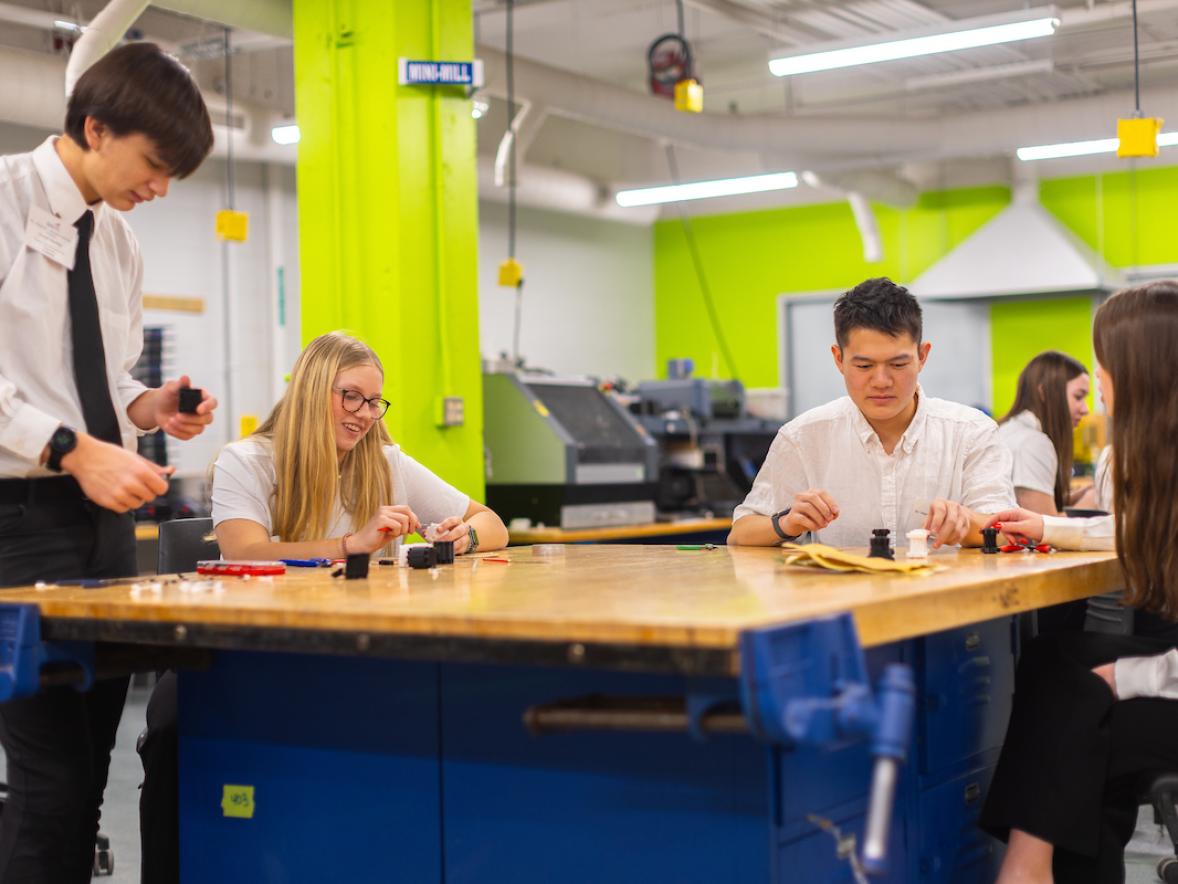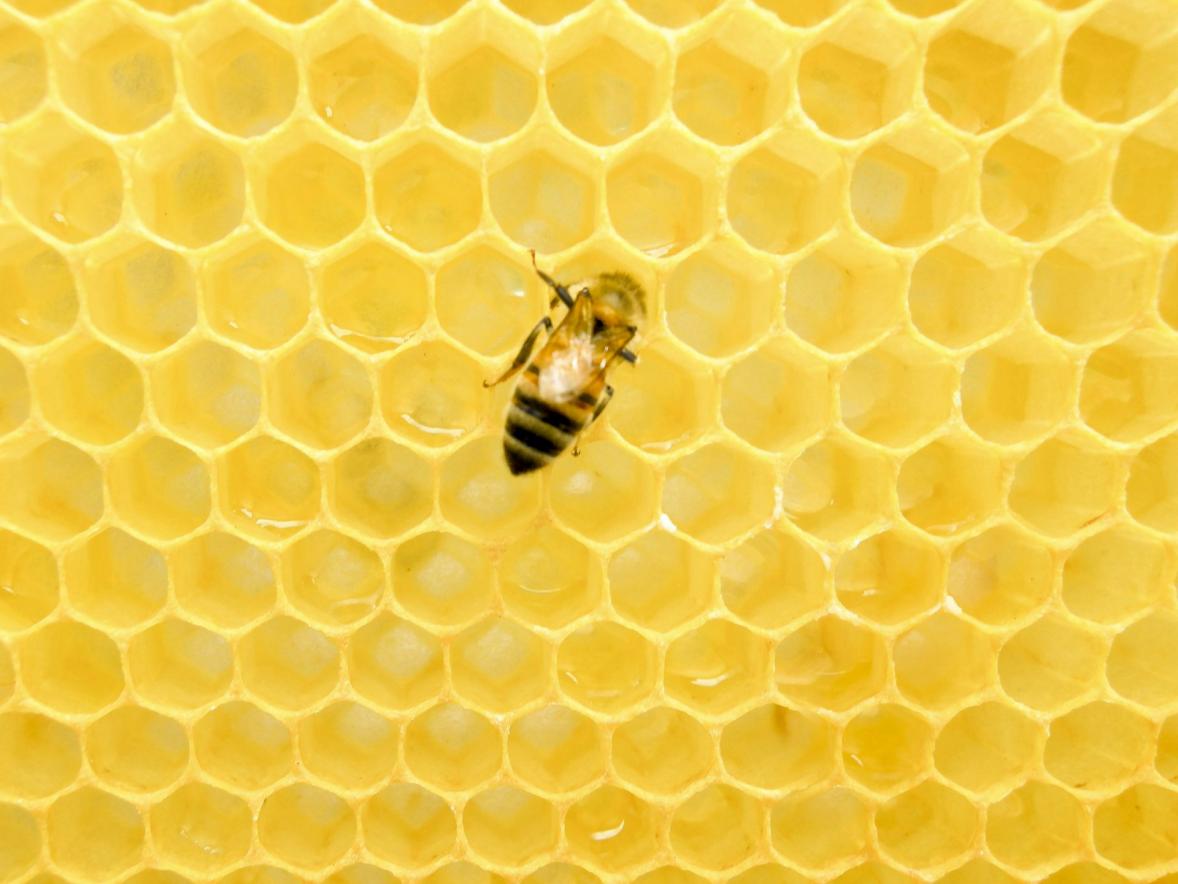With more than 13 billion pounds of cheese produced in the U.S. each year — about a quarter of that in Wisconsin — it’s obvious that Americans love their cheddar, curds, mozzarella and dozens of other varieties.
What if that cheese was safer to eat and easier to distribute and market?
That’s the potential impact of a research project being undertaken by a graduate student and professor at University of Wisconsin-Stout, one so promising that it already has won a statewide award.
At a recent Quick Pitch state competition for University of Wisconsin System students, Emily Lehmann took first place, topping nine other student ideas from around the state during the Wisconsin Science and Technology Symposium held in July at UW-Stout.
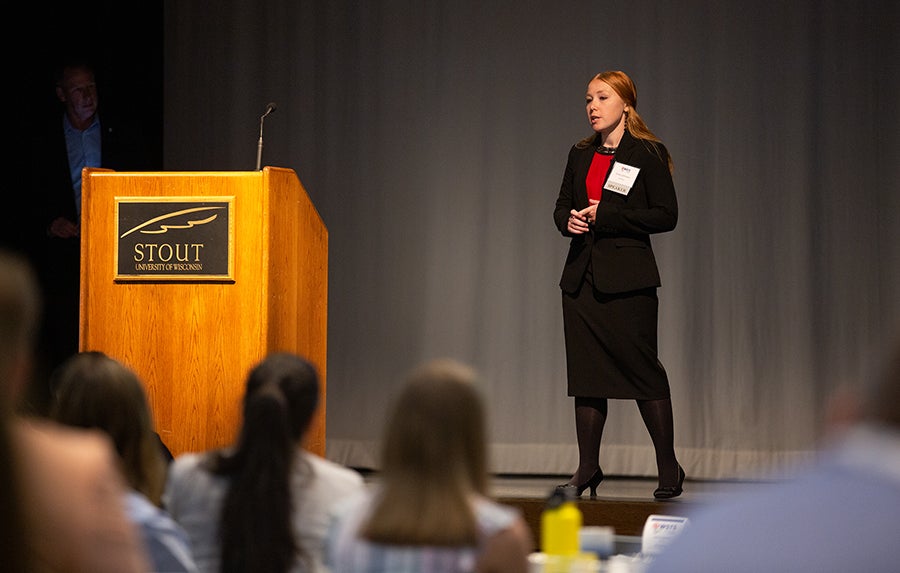
Lehmann, of Chippewa Falls, and Assistant Professor Taejo Kim are researching whether some natural cheeses have greater antimicrobial properties against food-borne pathogens like listeria when stored at room temperature.
Early test results from the food science labs at UW-Stout are indicating that’s the case, giving them hope in the initial year of their three-year study that they could help break the mold for cheese producers. If the research theory proves to be true, the cheese industry could benefit in several ways:
- Stronger antimicrobial properties could result in a reduced chance of consumers becoming ill from tainted cheese and fewer product recalls
- Storing at room temperature would enhance cheese flavor and aroma, for retailers and consumers
- With less cooling needed, transportation and storage costs could be reduced for cheese producers, wholesalers and retailers.
Lehmann and Kim have found that some cheese curds show more consistent anti-listerial power than cheddar cheese when stored at room temperature and appear to have greater resistance to secondhand contamination of listeria, which can be deadly. They also are testing resistance to secondary salmonella contamination.
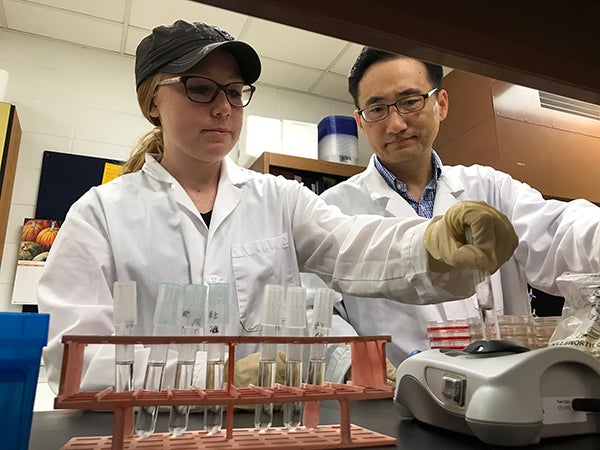 “Something in the cheese kills off the listeria and salmonella over time,” Lehmann said, noting that listeria likes a cool, wet environment. “Types of cheese are affected differently, so it’s all preliminary data.”
“Something in the cheese kills off the listeria and salmonella over time,” Lehmann said, noting that listeria likes a cool, wet environment. “Types of cheese are affected differently, so it’s all preliminary data.”
Lehmann expects to graduate in May 2020 with her master’s in food and nutritional sciences. She has a bachelor’s in animal science from UW-River Falls, with a meat science emphasis and minor in chemistry and food science.
She and Kim are partnering with Ellsworth Cooperative Creamery, which makes 180,000 pounds of cheese curds a day. Lehmann is a full-time quality assurance supervisor at the creamery. Her work includes staying current on food safety laws and regulations to assure that the products the creamery makes are safe for consumers.
The creamery uses pasteurized milk for its curds, samples of which it is supplying for the study. Also, the creamery is providing cheddar cheese samples from its plant in Comstock.
“The Ellsworth Cooperative Creamery is very proud of Emily and her research project. Food safety is very important to us all, and this research can help us better understand what makes a great, safe cheese product,” said Paul Bauer, creamery CEO.
Lehmann and Kim have done four research trials so far, with each trial lasting five weeks. They analyze cheese samples inoculated with listeria and salmonella and then observe their growth for 48 hours.
“We have very promising results, some good findings, but we need to do more,” said Kim, who has a Ph.D. in food science from Mississippi State University. “We have many numbers to analyze.”
One variable they have to monitor as the tests continue is that the properties of cow’s milk change with the seasons.
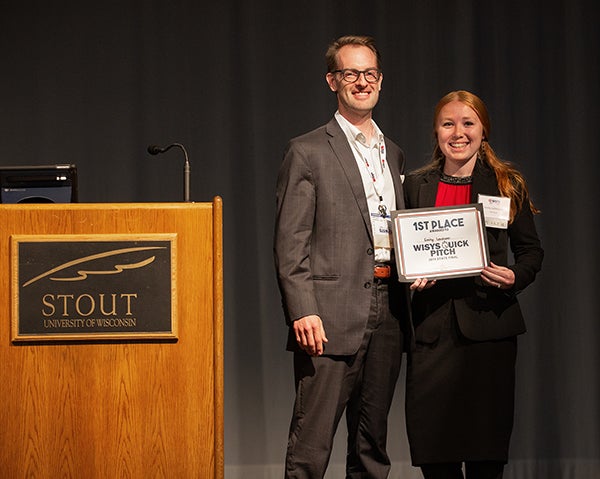 Quick Pitch competition
Quick Pitch competition
The Quick Pitch competition was sponsored by the Wisconsin Economic Development Corporation. The symposium held at UW-Stout was sponsored by WiSys, an independent, nonprofit organization that serves as the technology transfer office for the UW System, supporting the creation and transfer of innovations from the UW System to the marketplace.
Lehmann received $500 for winning. “I thought everyone had interesting ideas. I was surprised when I won,” she said, noting she worked hard to hone her three-minute presentation on the stage of the Memorial Student Center’s Great Hall.
“Emily’s knowledge and passion stood out during the presentation on stage,” said WiSys President Arjun Sanga. “Explaining the value of your research and doing it succinctly is difficult under normal conditions, but Emily was completely composed in front of a crowd of more than 200 UW System faculty, staff and students.”
Kim, whose major research interest is rapid detection of food-borne pathogens, is working with WiSys on the possibility of protecting the technology developed with the project.
Kim and Lehmann have received grants from the UW-Stout Office Research and Sponsored Programs and the Evelyn Van Donk Steenbock Endowed Chair award. They hope to secure additional funding and/or grants for the dairy safety and quality project.
Kim’s work with the dairy cheese industry has included the Furthering Food Safety Workshop, working with small businesses on using hands-on rapid and conventional detection techniques for food-borne pathogens.
###
Photos
Emily Lehmann gives her Quick Pitch state final presentation on cheese safety at the Wisconsin Science and Technology Symposium, which was held in July at UW-Stout.
Lehmann works with Assistant Professor Taejo Kim in a food science lab at UW-Stout. They are researching the antimicrobial properties of natural cheeses, partnering with the Ellsworth Cooperative Creamery.
Aaron Hagar, vice president of entrepreneurship and innovation for the Wisconsin Economic Development Corporation, presents Lehmann with the first prize in the WiSys Quick Pitch state final. WEDC sponsored the event.





